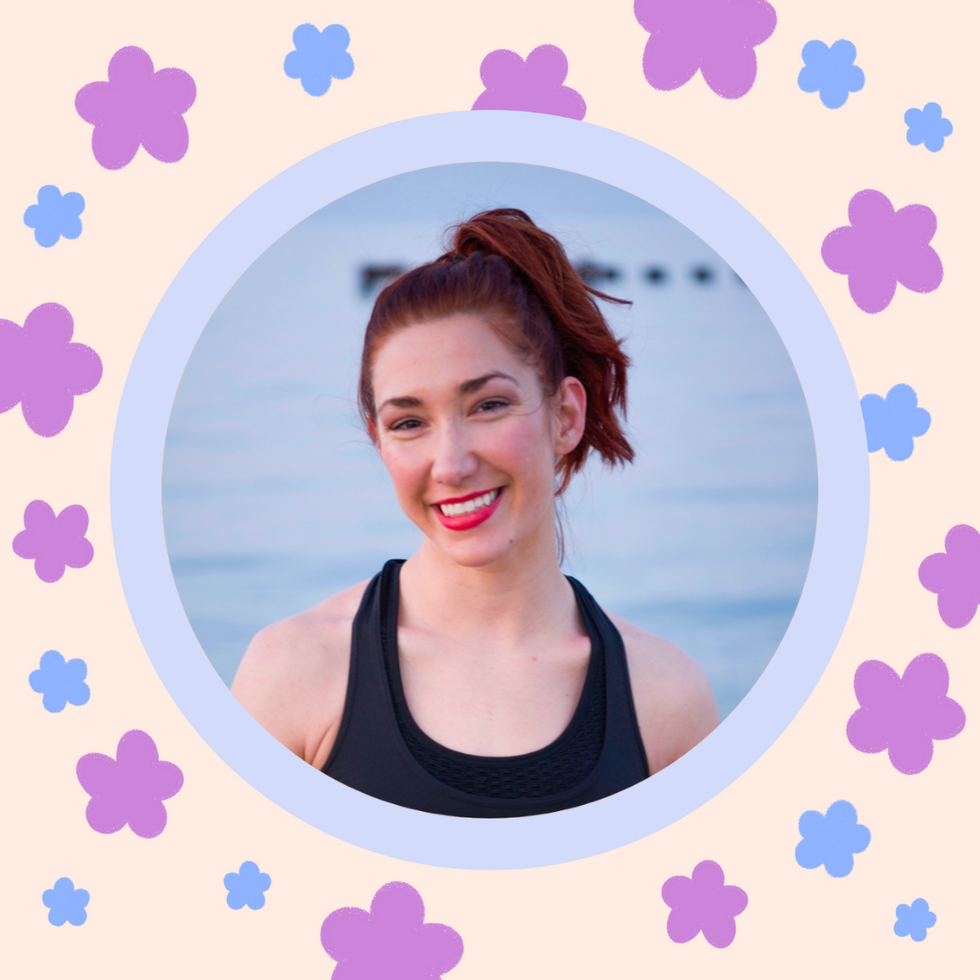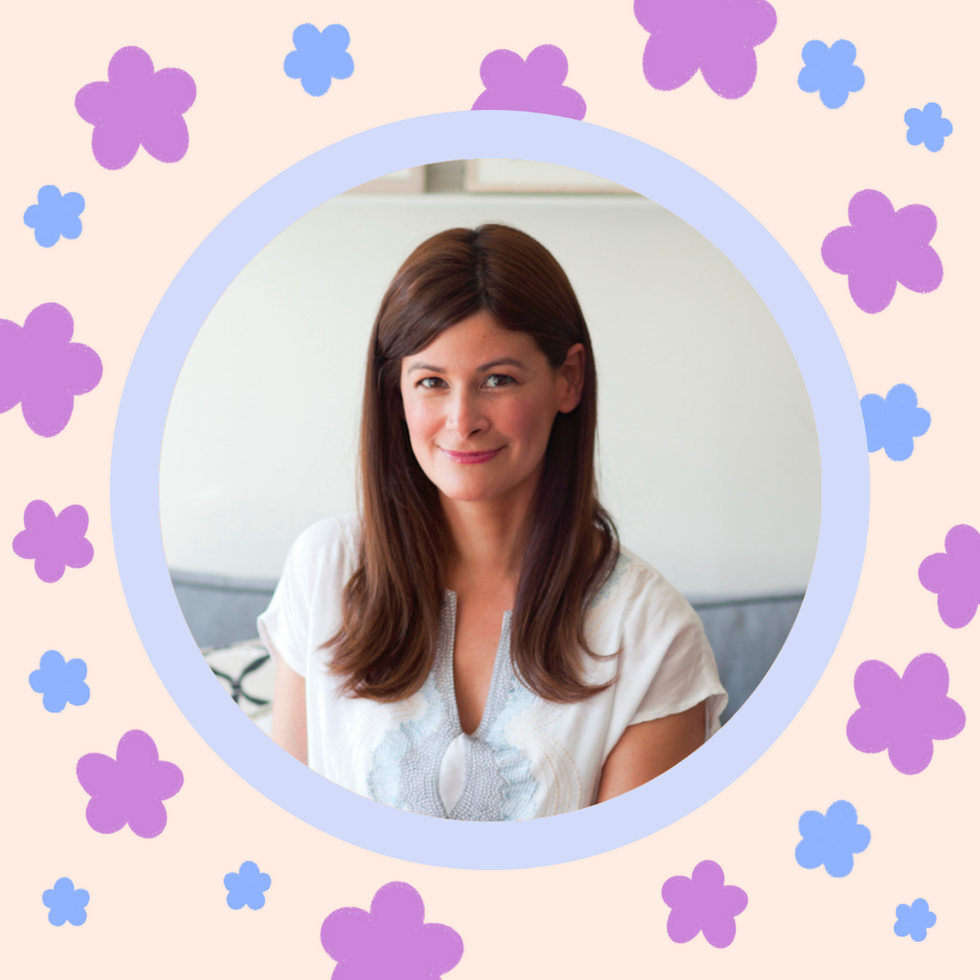
Lately, we've been faced with anxiety everywhere we turn. It's okay if (like us), you don't always know how to deal with the toughest of times, especially when the tough times never seem to end. If you are feeling that way, we're right there with you! In our team meeting this week, we shared the ways we cope with our personal stressors. Keep reading for our recommendations — hopefully they can help the next time you're feeling anxious.
Chloe Williams, Editorial Assistant

Intentional Thoughts
I'm someone who has a hard time letting things go; I can agonize over one thought or situation for days! Because of this, I focus a lot on taking thoughts captive, which just means pinpointing anxious thoughts and replacing them with what I know is true.
When I have an anxious thought, I do a creative visualization exercise in which I imagine it's inside a bubble floating over my head. Then I slam an imaginary door over the memory and lock it. Then the bubble explodes and the thought doesn't exist anymore. It's not necessarily pretending like it never happened, but it does allow me to exercise some control over what I allow myself to spend time and energy thinking about.
Alison Ives, Head Of Content

Breathing Techniques
My mom is a Pre-K teacher and suggested I try the breathing exercises she does with her kids who are just four years old (I'm 31 for context). The first is called Mountain Breathing, which entails holding up your hand and tracing the outline of your fingers. As you climb up the mountain (or your finger), inhale, and as you trace down into the valley between your fingers, exhale. Another breathing visualization she recommends is as you inhale, imagine yourself breathing in to smell the flowers, and exhale to blow out a candle. These little imaginative scenarios help me get out of my head and focus on my breathing when I need a little reset throughout the day.
Hammock Swinging
Whenever I'm feeling super stressed, I head for the hammock I setup in my front yard. Just as rocking can soothe babies, swinging in a hammock is a powerful soother for adults too! I feel super chilled afterwards and am usually getting some Vitamin D while I'm at it for a win-win.
Painting
During the pandemic, I revisited arts and crafts with soft pastels. I started mixing the colors and doing gradient shadings on card stock with my hands, and it proved to be a super meditative way to decompress. The end result is DIY art you can share or pin on your fridge or wall.
Maggie McCracken, Senior Editor

Breathing Techniques
Nothing calms me down quite like alternate-nostril breathing. I first learned about this technique in my yoga classes, but the practice (called Nadi Shodhana in Sanskrit) dates back to the Yoga Sutras of Patanjali, which was thought to be written sometime between 200 BC and 200 CE. Put simply, you sit in a comfortable position, close your eyes, and cover one nostril while you breathe in through the other. Then, you switch which nostril you're holding closed, and breathe out. In modern times, the connection between vagal nerve tone (which is correlated with anxiety and emotional regulation) and alternate-nostril breathing is becoming more and more mainstream, which may eventually help us better understand why this practice is so naturally calming.
Tarot Reading
Tarot can mean a lot of different things to different people. For me, I use tarot cards as a method to help me understand what lessons I'm learning at any given time. This has allowed me to view stressors in my life as learning experiences, which has helped me stay calm in numerous crises. I personally like to light some incense or a scented candle, sit quietly, and pull a card to see what resonates. That said, tarot and its associated images and meanings can be scary or triggering if you don't have a deep and gentle understanding of what the cards mean. I recommend Lindsay Mack's classes and podcasts for anyone who wants to learn about tarot in a non-judgemental, non-predictive, trauma-informed way.
Claire Shadomy, Graphic Designer

Sensory Accessories
My recent ways of coping/de-stressing have primarily been spiky sensory finger rings, which are a huge help when I need to get something done and can't stop my day to destress. I grab one of these guys which I have all over the place (most of my jacket pockets + purses), and it helps to calm me down and reset my focus.
Meditation On The Move
Another thing I do that I am trying to integrate into my daily routine is guided meditation walks. As someone who hasn't mastered sitting meditation I've found some on Headspace that I'm enjoying that are specifically for going on a walk through a city.
Allison Cimo, Social Media Manager

Baths...
In times of high stress, or after a long day, my go-to is always a candle-lit bath soak. I put a large scoop of Epsom salts in the tub with a few drops of my favorite essential oil and place tea lights all around the tub. It’s like my secret getaway from the rest of the world. I always make a point to leave my phone in the other room too so I utilize the time to just relax in silence. Water triggers the parasympathetic nervous system, which is responsible for the body's “rest and digest” response. It always gets my heart rate and blood pressure down.
...And Sound Baths
Sound baths are a meditative experience where you’re “bathed” in sound waves. I love to watch them online but you can also create your own experience. I find meditating with a singing bowl so relaxing. It can take a little practice, but once you’ve nailed the hand movement, it’s an interactive way to ease stress and channel your focus elsewhere.
Theresa Gonzalez, Branded Content Editor

Take A Hike
Pretty much every day in 2020 I walked the trails near my house and I started to pick up a small rock each time. I'd fidget with it while I cleared my mind and let nature calm my nerves. I would throw the rock back into nature after my hike and it felt like a release for all of my worries.
Bedtime Music
My daughter and I listen to Doze sleep music on Headspace before we go to bed. It calms her late-night zoomies (and mine) and gets her to sleep in minutes!
Brittney Davis, Account Manager

Journaling
What I use for my anxiety is the Intelligent Change Five Minute Journal. I have a safe word in place for when I feel myself spiraling or I'm not able to control my thoughts and breathing.
Subscribe to our email newsletter for more mental health tips, but if you're feeling anxious or overwhelmed and don't know where to turn, check out Psychology Today to find a therapist near you.
Brit + Co may at times use affiliate links to promote products sold by others, but always offers genuine editorial recommendations.
0 Commentaires